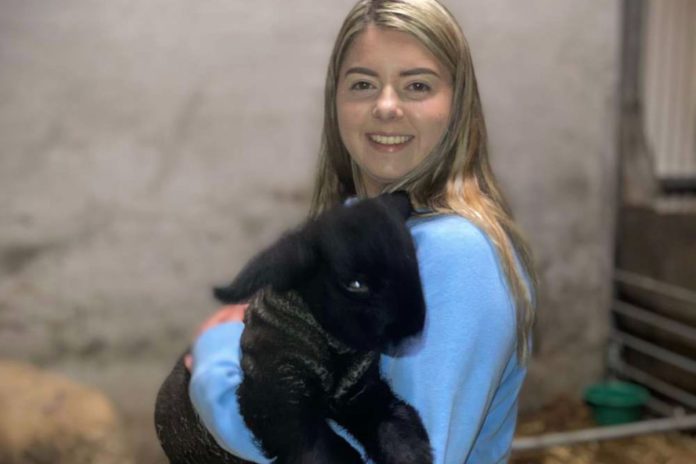Catherina Cunnane, That’s Farming editor, in conversation with Lauren Mockler, a 20-year-old first-year UCD vet student from Ahascragh, Co Galway, in this week’s Student Focus series.
“Our farm is a four-generation farm. My grandad is a full-time farmer. He has two daughters; neither of them has much interest in farming, but my brother and I help out as much as we can.
I remember feeding pet lambs as a small child when we had sheep and calves.
Also, I always loved to help feed the young stock. I used to give names to nearly all the calves and was somehow able to remember most of their names too!
Honestly, I do not know exactly what age I was when I realised I wanted to become a vet, but I was quite young.
I got one of those toy vet sets one Christmas with a teddy, a stethoscope and a thermometer.
I had a name tag that said ‘Dr Lauren’, and I was delighted with myself treating all of my teddies.
My primary school teacher said to me recently, “you know, Lauren? You were six when you first told me you were going to be a vet”. I suppose I just decided at a young age and never once changed my mind.
I always loved to see the vet coming to the farm (not what most farmers want), and if it was a section, that was even better.
The vet let me help with one or two sections, (I held the stitching thread), which helped with my decision. I loved to watch programmes like ‘Bondi Vet’ and ‘The SuperVet’, which also influenced me.
Farm life
My dad and uncle-in-law are always happy to help if we need more hands. It is predominately a dairy enterprise with a calf-to-beef system.
We milk a mixture of breeds, mainly British Friesians with a few others such as Simmentals, Montbeliardes, Jerseys and Angus-crosses.
Most of the calves born on-farm are Belgian Blue, Limousin or Angus. Also, we buy in a few calves every year.
We are only milking roughly 20 cows at the moment. As there is no one to take on the milking, we are looking at going into sucklers until some of us are older, and hopefully, then, my brother and I might be able to take over (depending on my busy vet life).
We rear all calves on milk replacer for roughly 8-10 weeks, where they then go out onto grass for their first summer.
All cattle (we have roughly 70) are housed during the winter. We sell some cattle around 20-24 months but finish the bulk of the cattle at 28/29 months.
Farming with grandad
One of my favourite aspects of farming, and one that is so important to me, is spending time with my grandad.
We are so close, and he teaches me so much, which will benefit me in my veterinary career. I am so grateful to have the time that we spend together farming.
As a little girl, he always had me out looking at cattle and counting them in fields with him.
When I was a good age, and after much pleading, we started to go to the mart on a Wednesday together, which I loved. I try to help him as much as I can, and I thoroughly enjoy it.
What I find most challenging is that there is so much to know in farming, and every day, you are learning something new.
No matter how long you have been farming, you will never know everything.
I am the type of person who loves learning new things, so although that is challenging, I also really enjoy that side of farming.
The main jobs that I do on-farm are milking, feeding calves, injecting and dosing, forking in silage during winter and giving nuts and concentrates to stock.
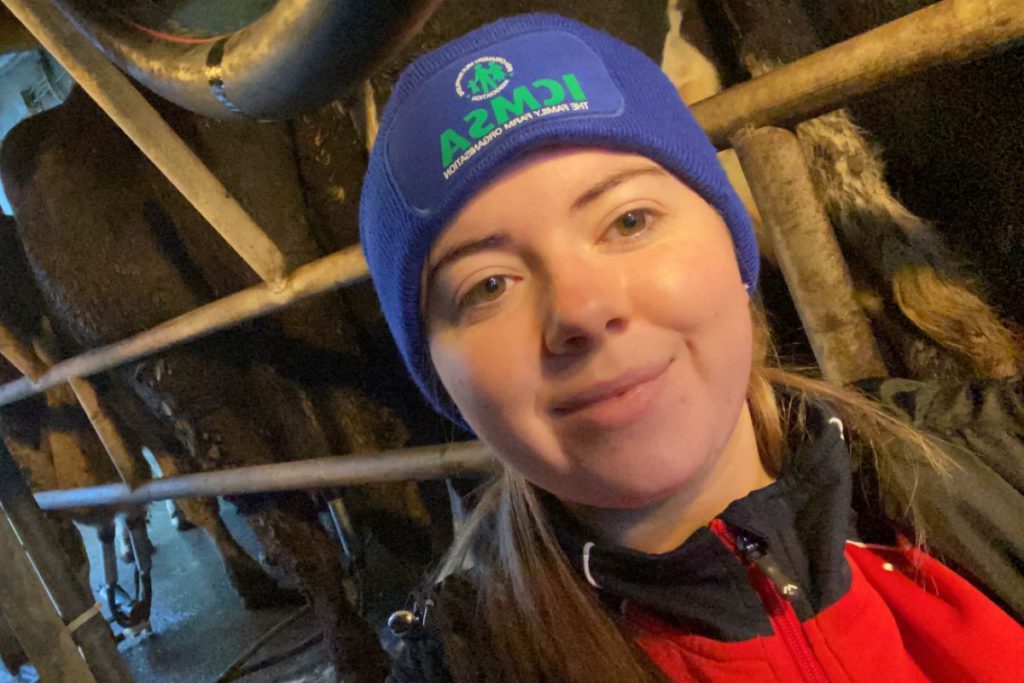
Animal health
Since starting to study veterinary, my new job is checking the overall health of the stock. I love to try to figure out what might be wrong with a beast, even though I still have not got a clue as I am only in my first year!
I would say that I am most passionate about overall herd health, especially calf health. That might be more veterinary-related, but, in my opinion, your stock’s health is a massive part of farming and agriculture.
We have had calves with scour, and I love doing research and trying new things to try to lessen the number of calves suffering from scour.
I have a massive interest in this and cannot wait to help farmers improve their overall herd health as a qualified vet.
UCD vet student
I enrolled in University College Dublin’s veterinary medicine degree programme in 2021 and will graduate in 2026.
UCD is the only college in Ireland that offers the veterinary medicine course, so that is why I chose it.
To be honest, I have always hated to see any animal in pain and wanted to be able to treat unwell animals.
I was always very content around animals, be it dogs and cats or cattle.
Placement
We get two weeks off in March to go on placement, and we also have to do some during Christmas and Summer holidays.
In first and second year, we do what is called ‘pre-clinical extramural studies.
This essentially means that we will not be going on placement with vets until third year on. I will be lambing at Lisbeg Farm in Eyrecourt, Co. Galway in March.
They lamb 1,500 ewes, and I have no experience with sheep, so that should be good craic! I am looking forward to getting hands-on with ewes. Also, I have to do two weeks with dairy, beef, pigs and horses.
I have to say that the highlight of the course so far has been the friends I have made and the craic we have. Veterinary is such a tight-knit community, and I have honestly made so many friends for life.
I honestly love the course. It is very manageable so far, as long as you tip away at your study. It is very interesting.
We have a module this semester called ‘practical animal husbandry’, which is essentially learning how to handle various animals.
Also, we get to go onto Lyons Farm in Kildare to do cattle, sheep, horse, pig and poultry practicals, which is enjoyable. We also do dogs, cats and exotics.
The course is five years long. Throughout the course, you study modules such as animal handling and welfare, professionalism, surgery and herd health, to name a few.
During final year, we will be spending a lot of our time in the UCD animal hospital doing clinical rotations.
Current timetable
My timetable is not hectic as I am only in the first year. On average, I have about 20 hours a week, which is manageable. This semester, I am finding my modules more enjoyable than last semester, and it is great getting to go on-farm.
I have made so many friends. One of my best friends only lives 20 minutes from me at home, and we never knew each other until we started college, which is mad!
Life as a vet student exceeds my expectations, and I love every minute of it.
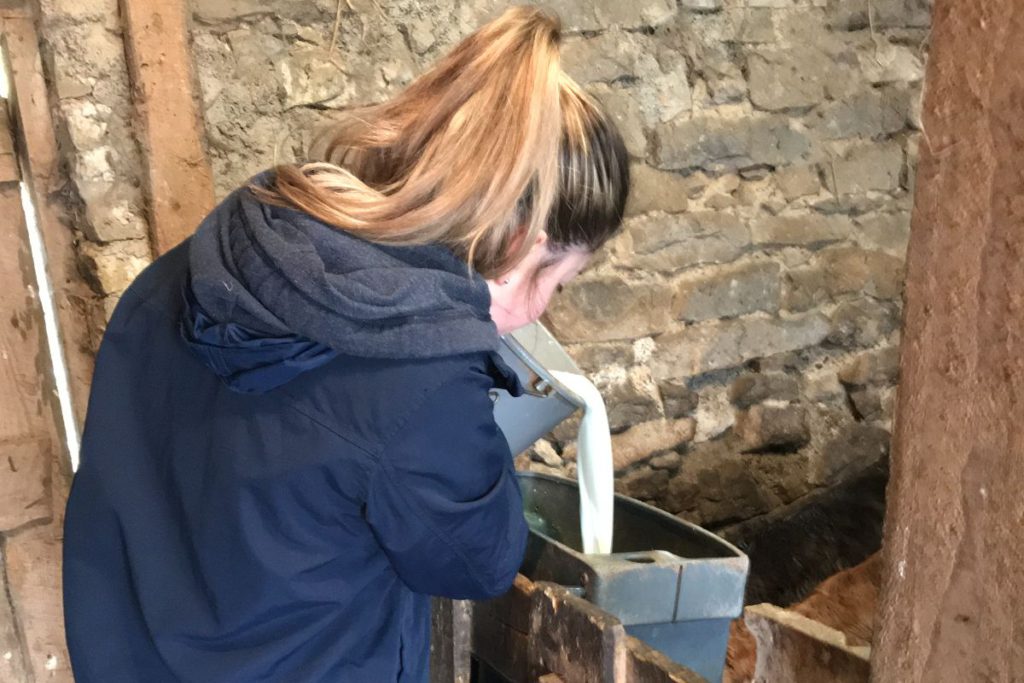
Sitting the LC twice
Unfortunately, I did not get the points for veterinary the first time around. I ended up repeating my Leaving Cert and was delighted to get the points this year.
Veterinary was my first choice. I had ag science as my second choice and got it last year, but I wanted to give the Leaving Cert another go and was looking at going abroad if I did not get my offer this year.
When I did not get veterinary the first time, I thought it was the end of the world. I was so upset about it, but I turned around two days after my results and started studying for the Leaving Cert exams last November.
However, I was so determined to get it, and I kept trying and trying. I live by the motto that ‘everything happens for a reason’, and I truly believe that it does.
If you want something, go for it. There are so many options when it comes to veterinary medicine. There are so many courses abroad in places like Warsaw in Poland and Budapest in Hungary where a lot of Irish people study.
You can also do an undergraduate degree like agricultural science or veterinary nursing and do graduate entry veterinary then, so the list of options is endless. If it is meant to be, it will be.
I just want to be able to help animals. They cannot tell us what is wrong or go to a doctor when they are unwell, so they are pretty helpless.
I also have a huge interest in herd health, as I said earlier, and want to help farmers with their production levels and help to improve their farming system in any way I can.
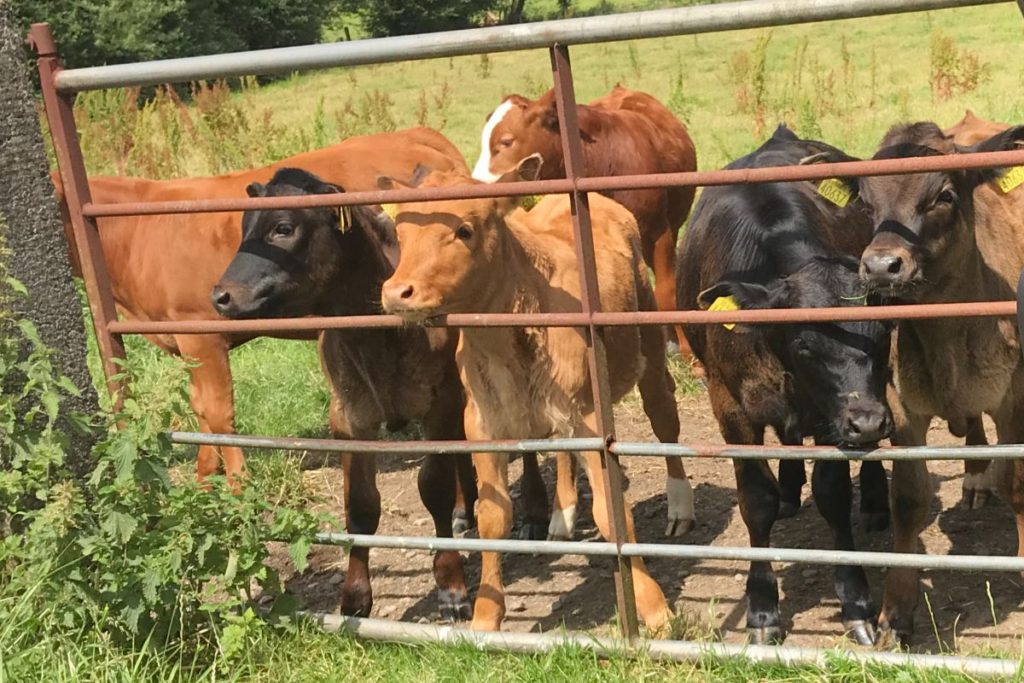
Mixed practice and further education
I want to work in a mixed practice for a few years to get a feel for what I like and what works best for me.
My main interest is in large animal medicine because that is what I have grown up seeing and working with large animals at home. However, I am not writing off small animal medicine or equine.
I would like to find a practice that suits me somewhere that I will settle well. Furthermore, I will look into opening my own practice someday, but that is just a thought for now.
Besides, I would like to work abroad maybe, but like that, I have nothing planned yet. That is a while away anyway!
Then, I hope to complete a cert or two when I finish. The dairy herd health grad cert is meant to be a great one to do in UCD and a great qualification to have.
I would find that area interesting, so I will look into that in the future.
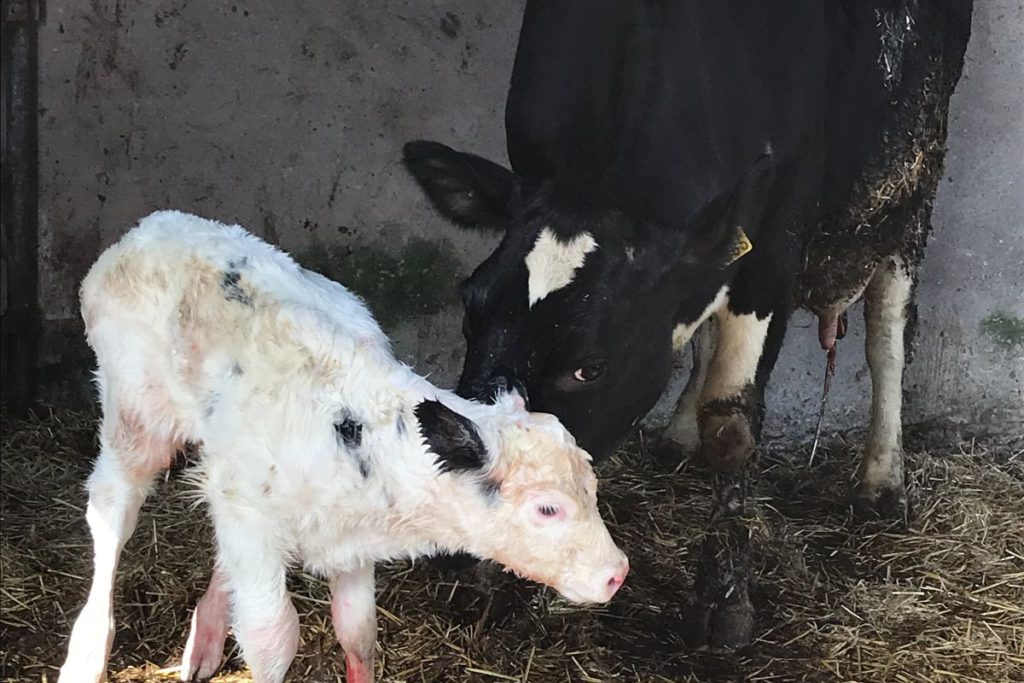
A shortage of vets
Veterinary in Ireland can only improve. There is no shortage of jobs for vets in Ireland, so I do not think any vets will struggle to find work.
From talking to vets, I know there can be issues around working hours and staff shortages leading to vets in practice having to work overtime and be on call quite often.
The work-life balance can be tough as a vet, but I knew that coming into the course.
I would like to hope that this might improve in the future to give vets a better quality of life. But in all fairness, not very many vets complain about it.
It is not just a career; it is a livelihood, and the majority of people going into veterinary medicine are well aware of that.
Women in veterinary medicine
I feel very proud to be a woman in veterinary. There are 22 males and 68 females in my course, so there is strength in numbers.
A good few females plan to go into large animal and mixed practice like myself. People have told me, “that will be a tough job as a woman”.
Yes, I will agree that women structurally are not as strong as men, but a lot of it is character, and most women in veterinary have it.
If you put your mind to something, you will achieve it. I am so glad to know plenty of women in large animal practice who are no less able than the men in practice.
We all have the same qualification at the end of the day, and there are more women qualifying as vets now than men.”
See more Student Focus profiles.
To share your story like this UCD vet student, email – [email protected]


